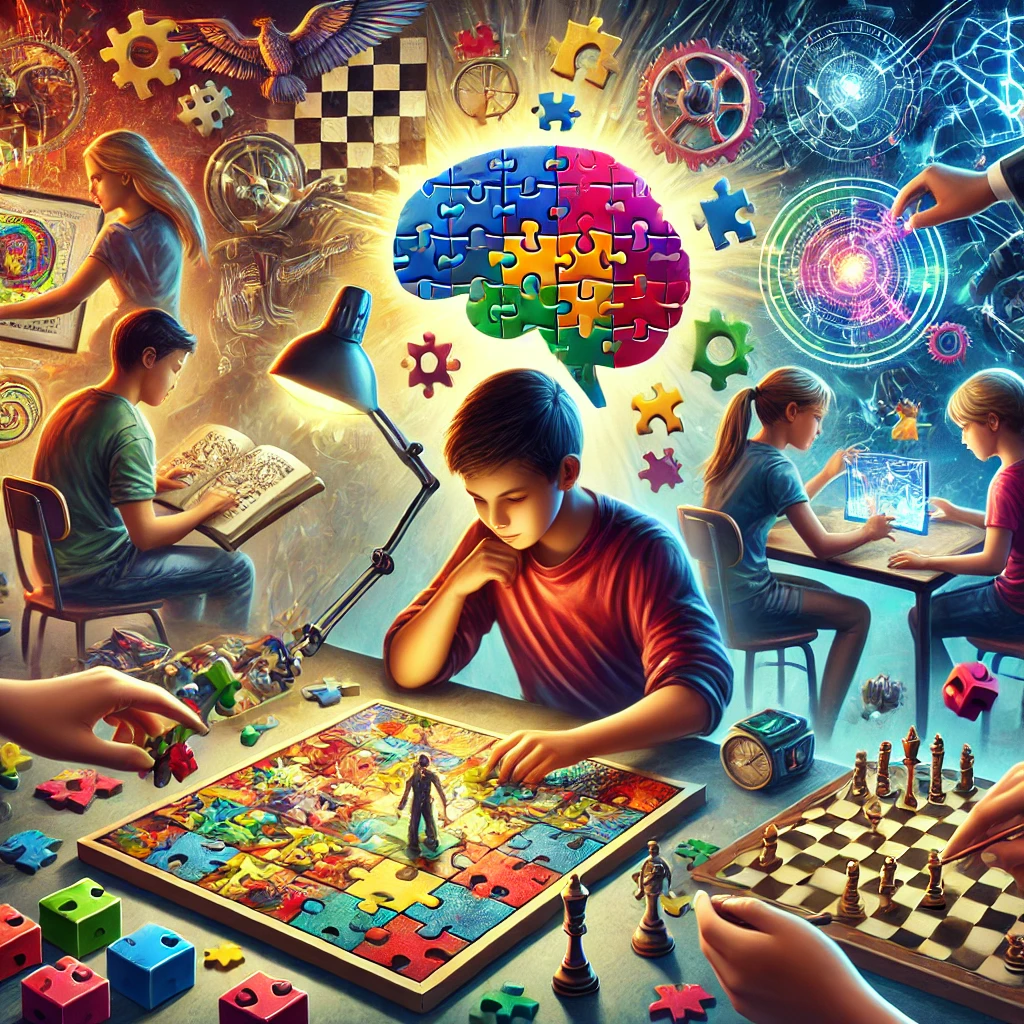How Puzzles and Games Improve Problem-Solving Skills
Puzzles and games have been a go-to for centuries when it comes to boosting cognitive abilities in children. These timeless activities not only keep children engaged but also help develop critical problem-solving skills that will benefit them throughout their lives. In this blog, we’ll explore how puzzles and games enhance a child’s problem-solving abilities and why they should be an essential part of every toy collection.
The Cognitive Benefits of Puzzles and Games
Problem-solving is a key cognitive skill that helps children approach challenges, think critically, and find solutions. Puzzles and games offer several developmental benefits:
● Critical Thinking: Puzzles and strategy games encourage children to think carefully about their next move or piece, fostering critical thinking and decision-making.
● Logical Reasoning: Whether it’s fitting puzzle pieces together or strategizing during a board game, children learn to use logic to solve problems.
● Patience and Persistence: Completing a puzzle or winning a game often requires time, patience, and persistence. These activities teach children the value of sticking with a challenge until they succeed.
● Spatial Awareness: Jigsaw puzzles, in particular, help children understand how different shapes fit together, enhancing their spatial reasoning abilities.
Types of Puzzles and Games that Boost Problem-Solving
- Jigsaw Puzzles Jigsaw puzzles challenge children to visualize the complete picture and figure out how individual pieces fit together. As they progress from simple to complex puzzles, they build stronger problem-solving skills and spatial awareness.
- Sudoku and Logic Puzzles Sudoku and other logic puzzles require children to think critically and use deductive reasoning to solve problems. These types of puzzles encourage children to look at different scenarios and eliminate possibilities to find the correct solution.
- Strategy Board Games Games like “Chess,” “Checkers,” or “Catan” require strategic thinking and planning. Players must consider their opponent’s moves and anticipate future consequences, which helps sharpen their critical thinking and decision-making skills.
- Maze Puzzles Whether on paper or as a physical game, mazes require children to figure out the correct path to the goal. This helps develop spatial reasoning and problem-solving abilities, as kids learn to think ahead and find multiple solutions.
- Pattern Recognition Games Games like “Set” or “Qwirkle” that require players to recognize and match patterns improve children’s ability to identify similarities, differences, and sequences, enhancing their logical thinking.
How to Encourage Problem-Solving Through Play
● Provide Age-Appropriate Challenges: Ensure that puzzles and games are suited to your child’s age and skill level. Too easy, and they’ll lose interest; too hard, and they’ll become frustrated.
● Play Together: Join in the fun and guide your child through problem-solving strategies during play. This not only strengthens their skills but also creates opportunities for family bonding.
● Offer Variety: Rotate different types of puzzles and games to keep your child’s interest and challenge them in new ways.
Incorporating puzzles and games into your child’s playtime is a fantastic way to enhance their problem-solving abilities. At Kidankam, we offer a wide range of puzzles and games that cater to different age groups and skill levels, ensuring that your child stays engaged while developing essential cognitive skills.








Add comment